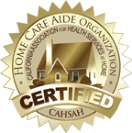Heart failure means that your heart is not pumping enough blood to sustain your body’s metabolic needs. It doesn’t mean that your heart has failed or is about to stop working. It simply means that your heart is not working as well as it should. Heart failure also affects the kidneys’ ability to get rid of sodium and water. The excess water can cause your feet, ankles and legs to swell. If your heart’s decreased ability to pump blood is accompanied by excess fluid in the lungs, congestive heart failure occurs.
Too much sodium makes the body retain fluid, increasing the workload of the heart. Weigh yourself daily; a sudden weight gain may mean that your body is retaining fluid. And check with your doctor for the restriction recommended for you. Foods with 140 mg or more of sodium per serving are generally considered high in sodium. Here’s a list of foods and condiments that have high sodium content: table salt (a teaspoon of salt contains about 2.4 grams of sodium), cheese, french fries, packaged cereals, soy sauce and Worcestershire sauce, canned soup and dry soup packets (unless made without salt), canned vegetables and meats, cured or smoked meats, and pickled foods.
Eat foods that are low in sodium which include the following: unsalted almonds, unsalted cooked oatmeal or pasta, apples, Romaine lettuce, bananas, unsweetened applesauce, tomatoes, baked potato with skin, broiled or steamed broccoli, baby carrots, fresh haddock, fresh beef, chicken or pork, fat-free milk, and wheat bread. Avoid drugs with high sodium content (laxatives and antacids such as Alka Seltzer).
Here are more tips to limit sodium intake: get rid of the salt shaker, learn to cook with spices and herbs to keep your meals exciting, avoid packaged and processed foods (salt is used as a preservative), choose lean cuts of meats, keep fresh fruits and vegetable handy for snacks, avoid salted crackers, muffins and biscuits, be careful with salt substitutes and spices that taste salty (they may contain other forms of salt that can be harmful), and make a habit of reading nutrition labels to check the sodium content of foods.
When dining out, select entrees that are roasted, broiled or grilled instead of fried. And maintain a healthy potassium level; this element helps balance fluids in the body and helps the heart work properly. Consult with a dietitian or nutritionist in tailoring a diet that meets your needs. Your doctor can give you a referral.
Lifestyle modifications can contribute to an improved overall health and quality of life. If you smoke, quit. Limit alcohol or don’t drink at all. Depending on the severity of your heart failure, your doctor may also suggest you limit the amount of fluids you drink. Decrease your caffeine intake. Limit fats and cholesterol. Eat several small meals rather than three large meals per day (overeating places an increased workload on the heart). Exercise, but consult with your doctor before starting an exercise program. If you feel anxious, stressed, angry or depressed, a professional counselor can help you deal with your emotions. Maintain regular contact with your physician and seek medical attention at the first signs of problems. And join a support group–sharing with someone who can relate to you can help you feel better.







